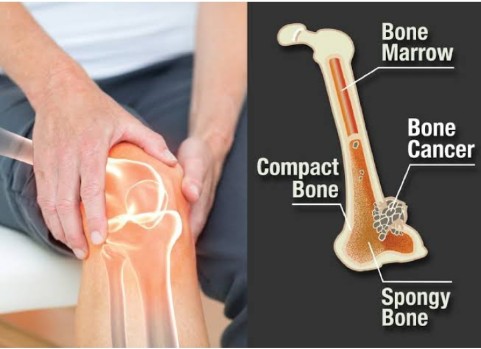Bone tumors, although relatively uncommon, present unique challenges that require specialized care and expertise. When it comes to the diagnosis and treatment of bone tumors, individuals in Lahore are fortunate to have access to some of the finest orthopedic specialists in the world. The best ortho doctor in Lahore, stands at the forefront of bone tumor treatment, combining vast experience with cutting-edge technology to provide the best possible care.
Understanding Bone Tumors
To embark on the journey of effective treatment, it is essential to first understand the nature of bone tumors. According to an orthopedic specialist, bone tumors can be categorized into two main types: benign (noncancerous) and malignant (cancerous). Here’s an overview of these two categories, along with some common examples of bone tumors within each type:
Benign Bone Tumors
· Osteochondroma: The most common benign bone tumor, typically occurring in the long bones, such as the arms and legs.
· Enchondroma: Arising from cartilage tissue within the bone, often found in the small bones of the hands and feet.
· Fibrous Dysplasia: A condition in which normal bone is replaced with fibrous tissue, leading to weakened and deformed bones.
· Giant Cell Tumor: Usually found in the long bones, particularly near the knee joint.
· Osteoid Osteoma: A small, benign tumor that often causes pain and tends to affect the long bones.
Malignant Bone Tumors
· Osteosarcoma: The most common primary malignant bone tumor, often affecting the long bones, particularly around the knee.
· Chondrosarcoma: A cancer that arises in cartilage cells and primarily occurs in the pelvis, shoulder, and ribs.
· Ewing’s Sarcoma: A highly aggressive tumor that primarily affects children and young adults, commonly found in the long bones and pelvis.
· Chordoma: A rare tumor that usually occurs in the spine or at the base of the skull.
· Malignant Fibrous Histiocytoma (MFH): A rare soft tissue sarcoma that can also affect bones.
It’s important to note that early diagnosis and proper medical evaluation are crucial for determining the type and extent of a bone tumor. Both benign and malignant bone tumors require evaluation and individualized treatment strategies by an orthopedic specialist.
Early Diagnosis and Accurate Assessment
The basis of successful bone tumor treatment lies in early diagnosis and accurate assessment. Diagnosing a bone tumor typically involves a combination of clinical evaluation, medical imaging, and laboratory tests. An orthopedic specialist utilizes these diagnostic tools to accurately assess the presence, location, and characteristics of bone tumors. Here are some common diagnostic tests for bone tumors:
1. Medical History and Physical Examination
A thorough medical history helps the doctor understand the patient’s symptoms and any risk factors. A physical examination can reveal signs such as tenderness, swelling, or limited range of motion in the affected area.
2. Imaging Studies
· X-rays: X-rays provide a two-dimensional image of the bones and can identify abnormal growths or changes in bone structure.
· Magnetic Resonance Imaging (MRI): An MRI provides detailed, cross-sectional images of the bones and soft tissues. It is valuable for assessing the extent and characteristics of bone tumors.
· Computed Tomography (CT) Scan: A CT scan can offer a three-dimensional view of the bones and is useful for evaluating the tumor’s size, location, and relationship with nearby structures.
3. Bone Scans
A bone scan encompasses inoculating a slight amount of radioactive material into the bloodstream. This material accumulates in areas of increased bone activity, which can be indicative of a bone tumor.
4. Biopsy
A biopsy is the perfect diagnostic procedure for bone tumors. It includes the extraction of a small tissue sample from the tumor for laboratory analysis. The type of biopsy can vary, including core needle biopsy, open biopsy, or fine-needle aspiration.
5. Blood Tests
Blood tests may be conducted to check for specific markers associated with certain types of bone tumors. Elevated levels of alkaline phosphatase, for example, can be indicative of some bone tumors.
6. Genetic Testing
In cases of suspected hereditary bone tumor conditions, genetic testing may be performed to identify specific genetic mutations that contribute to the development of bone tumors.
7. Positron Emission Tomography (PET) Scan
PET scans can help determine the metabolic activity of a bone tumor and whether it has spread to other parts of the body.
The results of these diagnostic tests, in conjunction with clinical evaluation, are the tools for the best ortho doctor in Lahore in making an accurate diagnosis and formulating an appropriate treatment plan.
Personalized Treatment Plans
No two bone tumors are identical so an orthopedic specialist emphasizes the importance of tailoring treatment plans to each patient’s unique condition. Whether the tumor is benign or malignant, treatment options can include surgery, chemotherapy, radiation therapy, or targeted therapies. The best ortho doctor in Lahore works closely with each patient to determine the most suitable approach, considering factors like the tumor’s type, location, size, and the patient’s overall health.
Surgical Expertise
For many bone tumors, surgery is a crucial component of treatment. The best ortho doctor in Lahore specializes in a wide range of surgical techniques, from minimally invasive procedures to complex tumor resections. The goal is to remove the tumor while preserving as much healthy bone and surrounding tissue as possible. In cases where the bone needs to be replaced, he is skilled in reconstructive procedures using cutting-edge implant materials.
Adjuvant Therapies
Some malignant bone tumors may require adjuvant therapies, such as chemotherapy or radiation, to complement surgical treatment. An orthopedic specialist collaborates with oncologists and radiation therapists to ensure a comprehensive approach to cancer treatment, minimizing the risk of recurrence.
Rehabilitation and Recovery
Post-surgery, rehabilitation is a critical phase in the treatment process. An orthopedic specialist works closely with physical therapists to design personalized rehabilitation programs. These programs include certain physical therapies to help patients regain mobility, strength, and function, promoting a return to an active and fulfilling life.
Psychological Support
Dealing with a bone tumor diagnosis can be emotionally challenging. The treatment plan often includes counseling and coping strategies as part of the treatment plan. Supporting the patient’s emotional well-being is an integral aspect of the comprehensive care provided.
In the end
In the realm of bone tumor treatment, the best ortho doctor in Lahore stands as a beacon of expertise and compassionate care. His commitment to early diagnosis, personalized treatment plans, and the integration of innovative techniques ensures that patients in Lahore receive world-class treatment for their bone tumors. The approach of an orthopedic specialist in Lahore combines the art of medicine with the latest scientific advancements, offering patients the best possible chances for recovery and an improved quality of life.


 Home
Home









